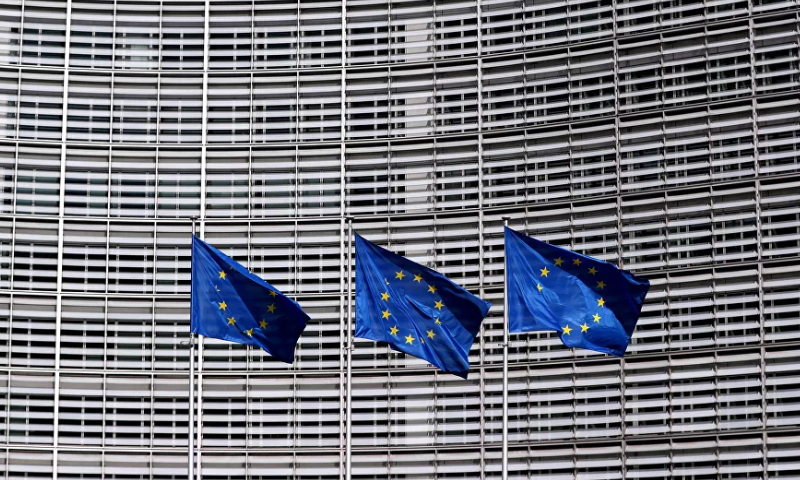



The Council of the European Union (EU) added the names of five Syrian women from the family of Mohammed Makhlouf, the maternal uncle of the Syrian regime president, Bashar al-Assad, onto its sanctions list on 21 February.
According to the EU Official Journal, the women are the widows of Mohammed Makhlouf, Hala Tarif al-Maghout, and Ghada Adib Mhanna, and his three daughters Shalaa, Kinda, and Sara.
“On 12 September 2020, Mr. Mohammed Makhlouf passed away. Since his heirs are all members of the Makhlouf family, there is an inherent risk that the inherited assets will be used to support the activities of the Syrian regime and will flow directly into the regime’s possession, potentially contributing to the regime’s violent repression of the civilian population,” the Official Journal published.
With these new names, the list of entities and individuals subject to sanctions in view of the situation in Syria has come to include 292 persons targeted by an asset freeze and travel ban and 70 entities subject to an asset freeze, a press release by the European Council mentioned.
Natural and legal persons and entities in the EU are forbidden from making funds available to both listed individuals and entities.
The press release also referred to the imposition of sanctions on Syria for the first time in 2011 in response to the violent repression of civilians by the al-Assad regime.
These sanctions also targeted prominent companies and businessmen benefiting from their ties with the regime and the war economy.
The restrictive measures also included a ban on the import of oil, restrictions on certain investments, a freeze of the assets of the Central Bank of Syria (CBS) held in the EU, and export restrictions on equipment and technology that might be used for internal repression, as well as on equipment and technology for the monitoring or interception of internet or telephone communications.
EU sanctions in Syria are designed to avoid any impact on humanitarian assistance, and therefore aim not to affect the delivery of food, medicines and medical equipment.
The EU keeps developments in the Syrian conflict under constant review and can decide to renew sanctions and amend the list of targeted entities or persons based on developments on the ground, the press release added.
Mohammed Makhlouf, the father of Syrian business tycoon Rami Makhlouf, died on 12 September 2020.
After Hafez al-Assad took over Syria in 1970, his wife’s brother, Mohammed Makhlouf, rose to power and became the money manager of the al-Assad family over the following years.
The kinship to Hafez al-Assad allowed Mohammed Makhlouf, the founding father of the Makhlouf financial empire, to take the position of the General Organization of Tobacco (GOT) director. From there, Makhlouf started a legacy of corruption, according to Firas Tlass, former Syrian Defense Minister Mustafa Tlass’s son, who named Mohammed Makhlouf “the patriarch of the Makhlouf family.”
Tlass said in an interview with Russia Today (RT) television network that Mohammed Makhlouf had hired experts from Lebanon and the UK to help him establish a financial empire built mostly on oil sales. He requested a 7 percent share of any oil purchasing deal from Syria, profiteering from the al-Assad family’s influence and power, gaining a daily amount of six to seven million US dollars from oil sales alone. He also imposed himself as a partner on all oil companies operating in Syria, according to Tlass.
Unlike the rest of the family, Mohammed Makhlouf’s name rarely appeared in any public business activities. This was the case until leaked documents from HSBC Bank accounts in Switzerland revealed in 2015 that Mohammed Makhlouf had presented his bank statements to the bank as a local agent for American Tobacco Company Philip Morris, the owner of the Marlboro tobacco brand, and for the Japanese company Mitsubishi, and US-based company Coca Cola in Syria.
In August 2011, the European Union imposed sanctions on Mohammed Makhlouf for being in Bashar al-Assad’s inner circle and banned him from entering EU countries.
In 2015, Mohammed Makhlouf appealed to the European General Court (EGC), challenging the EU’s sanctions under the claim that they are a violation of his right to privacy and preventing him from maintaining the living standards his family had been accustomed to; but, the EGC rejected his appeal.
if you think the article contain wrong information or you have additional details Send Correction